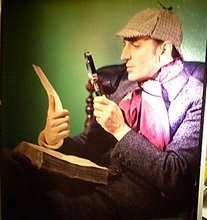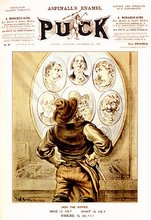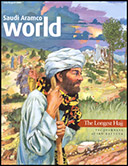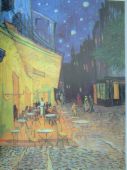You could be at your desk.
On the train.
In the lift.
At the sales.
Gardening.
Queueing.
Showering.
Jogging.
Even counting sheep.
We don't mind how you do your best thinking, as long as you do it.
Mostly because it means you're already like us.
You're not afraid of questioning the norm, or of giving other people your point of view.
The prospect of working on out-there projects for up-three clients doesn't make you quake in your boots.
Like the rest of us, you want to be challenged and pushed right out of your comfort zone.
The end result is that our thoughts change how the world works.
We broaden our minds on a daily basis.
We're pretty certain you're unlikely to find training and development opportunities that stretch you quite like ours will.
You could find yourself using technology in a way it's never been used before.
Or being told on a Friday night that you start a new project in Newcastle on Monday morning.
There's always going to be a lot happening.
And a great deal that makes you think - ACCENTURE
Having participated in the HSBC Business Challenge during my first year in University of Nottingham Malaysia Campus in 2006 served as a platform for me to work in the real world of banking and finance. The award of Trustee of the Year 2006 by International Securitisation Report (ISR) received by HSBC's Corporate Trust and Loan Agency (CTLA) business further strengthened its status as the truly local and global solutions to the clients from all over the world. In light of globalisation, the banking and finance industry is developing in a fast-changing environment and HSBC proves its ability to be the leader, driven by its dynamic worldwide workforce . My undergraduate course Industrial Economics with optionals like Financial Management and Management Accounting needs the real enrichment to apply and contribute my knowledge, and HSBC Corporate Banking is the ideal platform. In addition, globalisation brings about the different nationalities all around the world to cooperate, work, and learn from each other to keep on generating the corporate banking industry. The emergence of China and India proved my point to nurture my ability and career skills with other nationalities, and with offices in 76 countries, HSBC is one of the world s largest banking and financial services organisations; this is my golden chance to contribute and be part of the community wherever HSBC do the business. To gain experience during my internship in HSBC will develop myself to be a well rounded student, as David Kappler said experience is the most important quality.
Ian Christison the CIMA president once said, "chartered management accountants are leaders. We demonstrate our leadership in our approach to the profession and in our relationships with major stakeholders, most significantly, employers". Based on his saying, to work in a team group during my academic term will always be like the real test in working in a banking and finance industry. Globalisation brings about the importance of working with different nationalities. My group and I participated in the HSBC Business Challenge 2006 in Malaysia and my responsibility as a leader was to be professional in discussion to accept the views and ideas from the members. I also believe in the fun of the task that we have to accomplish, to work in a prosperous environment. Yes, different people will present different ideas and I believe the consensus shall be achieved based on the relevant and critical elements of all the ideas, and teamwork provides a pool of ideas that is also a reflection of a highly grounded, dynamic, healthy, and successful organisation. In 2006/07, my group and I from Nottingham Business School participate in the Global Management Challenge United Kingdom brought by Hobsons Graduate Employment, and to engage in the real world business proves the importance of a dynamic team working. I believe the different approaches and abilities from different members will bring about the positive outcome in any consensus that we shall make, and the most important aspect is we can contribute and learn from each other.
If people don't get to know each other first, there's a good chance the relationship won't last.
Vive la différence.
Robert Burns (January 25, 1759 – July 21, 1796) was a poet and a lyricist. He is widely regarded as the national poet of Scotland, and is celebrated worldwide. He is the best-known of the poets who have written in the Scots language, although much of his writing is also in English and a 'light' Scots dialect which would have been accessible to a wider audience than simply Scottish people. At various times in his career, he wrote in English, and in these pieces, his political or civil commentary is often at its most blunt.
Burns is regarded as a pioneer of the Romantic movement and after his death, he became an important source of inspiration to the founders of both liberalism and socialism. A cultural icon in Scotland and among Scots who have relocated to other parts of the world (the Scottish diaspora), his celebration became almost a national charismatic cult during periods of the 19th and 20th centuries, and his influence has long been strong on Scottish literature.
Burns also collected folk songs from across Scotland, often revising or adapting them. His poem (and song) "Auld Lang Syne" is often sung at Hogmanay (New Year), and "Scots Wha Hae" served for a long time as an unofficial national anthem of the country. Other poems and songs of Burns that remain well-known across the world today, include "A Red, Red Rose", "A Man's A Man for A' That", "To a Louse" and "To a Mouse".
Burns' Night, effectively a second national day, is celebrated on 25 January with Burns' Suppers around the world, and is still more widely observed than the official national day, Saint Andrew's Day, or the proposed North American celebration Tartan Day. The format of Burn's supper has not changed since Robert's death in 1796. The basic format starts with a general welcome and anouncements followed with the Selkirk Grace. Just post the grace comes the piping and cutting of the Haggis, where Robert's famous ode To a Hagis is read, and the haggis is cut open. The event usually allows for people to start eating just after the haggis is presented. This is where the reading called the "immortal memmory" which is an over-view of Robert's life and work is given. Lastly the event will usually conclude with the singing of Auld Lang Syne - wikipedia.org
Should auld acquaintance be forgot,
And never brought to mind?
Should auld acquaintance be forgot,
And auld lang syne!
For auld lang syne, my dear, For auld lang syne.
We'll tak a cup o' kindness yet,
For auld lang syne.
And surely ye'll be your pint stowp!
And surely I'll be mine!
And we'll tak a cup o'kindness yet,
For auld lang syne. For auld, &c.
We twa hae run about the braes,
And pou'd the gowans fine;
But we've wander'd mony a weary fit,
Sin' auld lang syne.
For auld, &c.
We twa hae paidl'd in the burn,
Frae morning sun till dine;
But seas between us braid hae roar'd
Sin' auld lang syne.
For auld, &c.
And there's a hand, my trusty fere!
And gie's a hand o' thine!
And we'll tak a right gude-willie waught,
For auld lang syne. For auld, &c.
Subscribe to:
Post Comments (Atom)





No comments:
Post a Comment